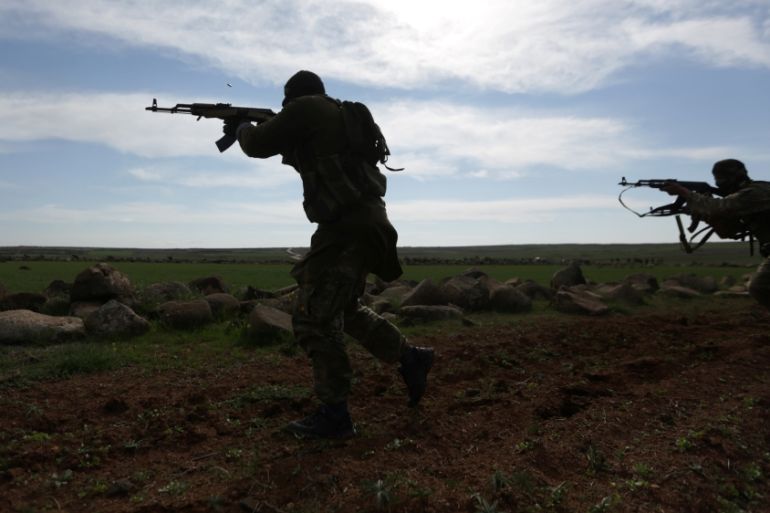Syrian opposition: We still believe in the revolution
Representatives of some of Syria’s armed opposition say they are hopeful of achieving a lasting ceasefire in Astana.

Representatives of some of Syria’s armed opposition groups attending talks in Kazakhstan say they are hopeful of achieving a lasting ceasefire agreement in eight of the country’s 14 war-ravaged provinces.
Ayman al-Asemi, a member of the Free Syrian Army’s military council attending the talks in Astana, said while the meetings would not produce a final settlement to the war, they could see a final agreement to the set-up of four so-called “de-escalation zones”.
The Astana talks are aimed at finalising a plan for the four zones, which will include certain areas of Idlib, Latakia, Aleppo, Hama, Homs, Eastern Ghouta, Deraa and al-Quneitra.
|
|
The closed-door meetings are also seeing discussions on the release of detainees held by the government of President Bashar al-Assad, as well as about the delivery of food and aid to besieged areas.
“This war is far from over,” al-Asemi told Al Jazeera.
He said while the situation on the ground did not bode well for Syrians, regional and international powers were to blame having exposed themselves as spectators to the violence being perpetrated.
“We will not compromise our freedom and our ultimate goal of removing Assad and his regime from power,” al-Asemi said.
He added that the opposition had submitted several “secret files” to the UN delegation in Astana, with “solid evidence” of crimes committed by the regime.
According to al-Asemi, the crimes include the use of chemical weapons, the torture of detainees inside Homs central prison, forced expulsion of residents based on their ethnic and religious affiliations and war crimes committed by Iranian revolution guards against civilians.
‘Astana eclipses Geneva’
The seventh round of negotiations on the war in Syria was brokered by Russia and Iran, who support Syrian President Bashar al-Assad’s regime, and Turkey, which backs the opposition.
Joshua Landis, a professor at Oklahoma University and editor of the Syria Comment blog, told Al Jazeera that although there have been several international initiatives aimed at bringing the war to an end, “Astana has turned into the real venue for Syria negotiations.
He added the talks in Afghanistan had eclipsed “Geneva in importance”, referring to the separate UN-sponsored negotiations held in the Swiss city.
Landis said Astana has practically replaced “years of fruitless grandstanding in Geneva” achieving tangible results on the ground in the form of “de-escalation zones”, which brought about some reprieve to the affected population.
Talks in Geneva had failed to put an end to more than six years of war that left much of Syria in ruins, killed nearly half a million people, and displaced half of the population.
Landis said that backers of the Syrian opposition – mostly Gulf Arab states, the US and Turkey – had come to terms with the end of the “revolution”.
On Monday, former Qatari Prime Minister Sheikh Hamad Bin Jassim Al Thani said that “Qatar, along with Saudi Arabia and the US, had jointly coordinated the arming and funding Syrian opposition groups”.
Landis said Saudi Arabia and the UAE were now preoccupied with the conflicts in Yemen and Libya and their diplomatic dispute with Qatar.
Colonel Fateh Hassoun, who heads the opposition military delegation to the Astana talks, said that he still had faith in the “Syrian revolution.”
“The aim of the Syrian opposition is still to reach a political solution to the war and lead to a transition period without the regime of Assad.”
Follow Ali Younes on Twitter @ali_reports